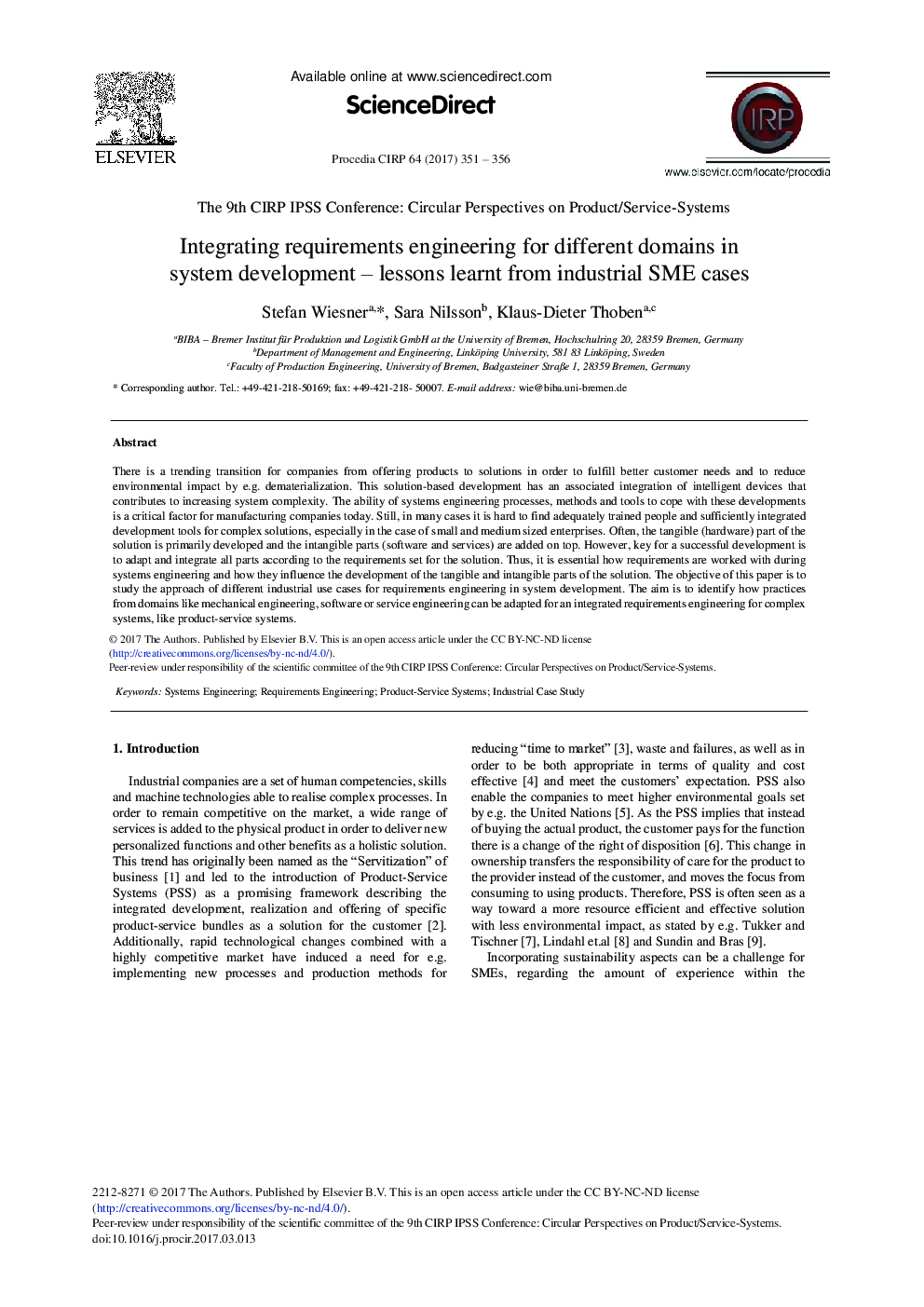| Article ID | Journal | Published Year | Pages | File Type |
|---|---|---|---|---|
| 5469992 | Procedia CIRP | 2017 | 6 Pages |
Abstract
There is a trending transition for companies from offering products to solutions in order to fulfill better customer needs and to reduce environmental impact by e.g. dematerialization. This solution-based development has an associated integration of intelligent devices that contributes to increasing system complexity. The ability of systems engineering processes, methods and tools to cope with these developments is a critical factor for manufacturing companies today. Still, in many cases it is hard to find adequately trained people and sufficiently integrated development tools for complex solutions, especially in the case of small and medium sized enterprises. Often, the tangible (hardware) part of the solution is primarily developed and the intangible parts (software and services) are added on top. However, key for a successful development is to adapt and integrate all parts according to the requirements set for the solution. Thus, it is essential how requirements are worked with during systems engineering and how they influence the development of the tangible and intangible parts of the solution. The objective of this paper is to study the approach of different industrial use cases for requirements engineering in system development. The aim is to identify how practices from domains like mechanical engineering, software or service engineering can be adapted for an integrated requirements engineering for complex systems, like product-service systems.
Related Topics
Physical Sciences and Engineering
Engineering
Industrial and Manufacturing Engineering
Authors
Stefan Wiesner, Sara Nilsson, Klaus-Dieter Thoben,
